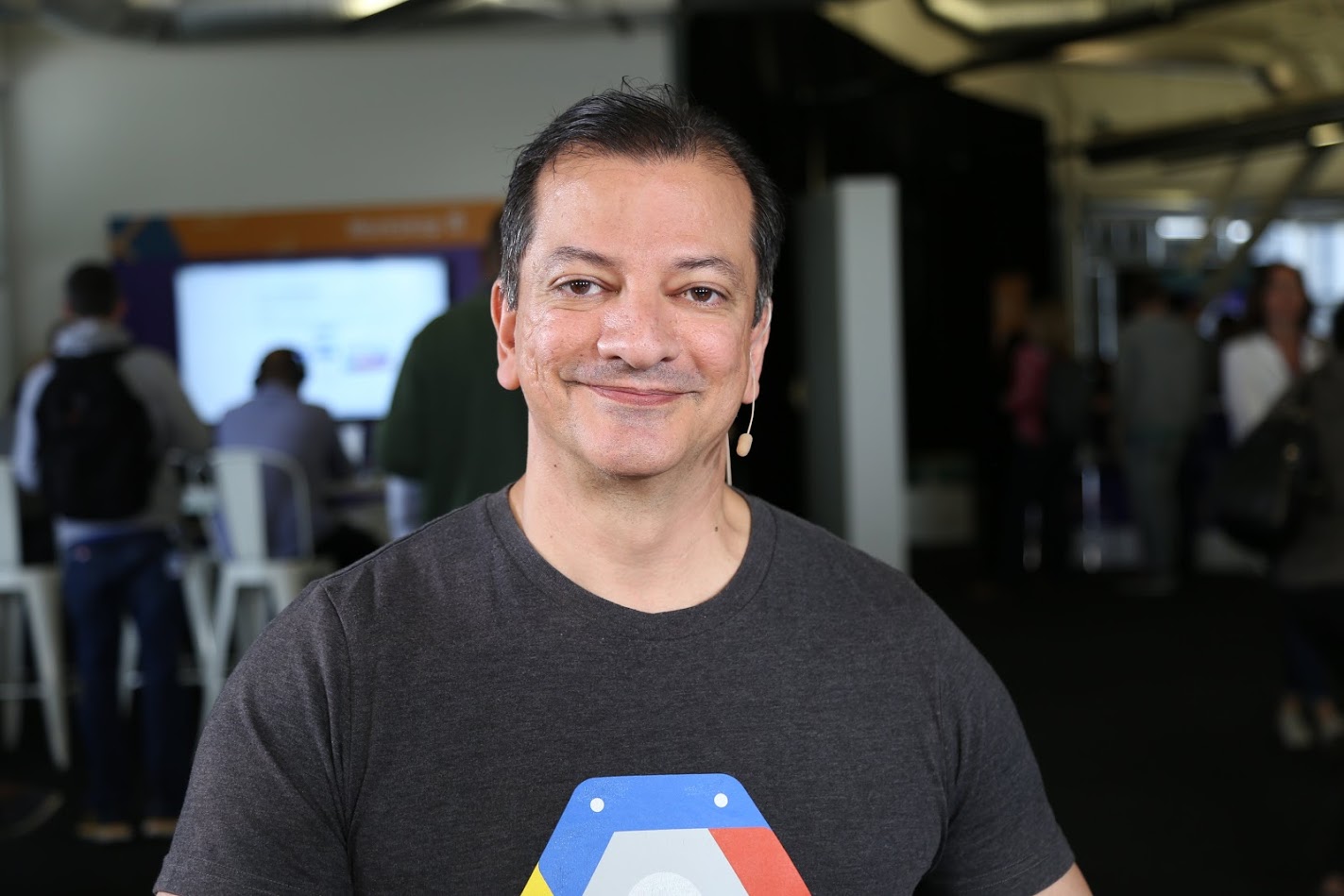 CLOUD
CLOUD
 CLOUD
CLOUD
 CLOUD
CLOUD
Where the term DevOps once represented the whole of software creation and deployment within business operations, the expansive realm of cloud computing is spurring hardwired networks to become more programmable. To help businesses build teams capable of addressing the matters of migrating, monitoring and modifying software applications in the cloud, one expert suggests a shift in operations culture, adding ApplicationsOps and ClusterOps to the repertoire of information technology’s canons.
“We have at Google an ApplicationsOps team that’s responsible for taking an app from a developer and deploying it the environment. Then we have a ClusterOps team focused on the underlying infrastructure, and [it] maintains cluster APIs for Kubernetes environments,” said Allan Naim (pictured), who works on product management for Google LLC’s Kubernetes Engine.
Sitting down with SiliconANGLE’s roving news desk just moments after his keynote presentation at Cisco Systems Inc.’s DevNet Create event today, Naim expanded on this notion of a separation of concerns within information technology departments. Chatting with theCUBE hosts John Furrier (@furrier) and Lauren Cooney (@lcooney), Naim explained that this separation of concerns enables developers to do what they do best, as collaborative teams can more effectively push applications into production “very quickly.” (* Disclosure below.)
As a Google-created project, Kubernetes was designed to facilitate the migration of applications to cloud environments through the containerization process. Now managed by the Cloud Native Computing Foundation, Kubernetes has flourished as an open-source tool for container technology. When it comes to computing networks, however, Kubernetes can be difficult to set up in on-premises environments. Kubernetes must work closely with computing infrastructure to efficiently move an application that runs a certain way in one server location to run consistently in other locations.
“As you build more and more clusters and expose more and more services, the day two experience starts coming in,” said Naim, laying out a series of questions a typical software developer might ask when exploring container technology: “’How do I manage this environment? How do I manage my services? How do I find out what these services are doing and how they’re talking to each other? How do I handle [network] traffic management?”
From Naim’s perspective, open source is an avenue to begin answering these questions, citing the Istio project as an opportunity to apply more of an operations mindset to computer networking.
Launched by Google, IBM Corp. and Lyft Inc., Istio is an open platform to connect, manage and secure software applications, supported by load balancing, authentication and monitoring services without requiring any changes to the service code. Istio is added via a special sidecar proxy throughout a company’s computing environment that intercepts all network communication between applications.
Thanks to open-source efforts like Istio and Kubernetes APIs, Google is able to more closely partner with network service provider Cisco Systems Inc. to better secure computing environments. The two companies now have a hybrid offering that tailors to customers starting out on their journey to cloud-native computing in on-prem environments. Cisco provides a mechanism to run Kubernetes on-prem with a centralized support model.
“For customers that want to start building in the cloud, you need secure performance networking. How? Cisco is an innovator in networking and security. Google is an innovator in cloud and open-source tech and cloud-native technology. We bring these two together to give developers and [systems administrators] to collaborate and have an API approach to running workloads that span a hybrid cloud estate,” Naim concluded.
Watch the complete video interview below, and be sure to check out more of SiliconANGLE’s and theCUBE’s coverage of the DevNet Create event. (* Disclosure: TheCUBE is a paid media partner for DevNet Create. Neither Cisco Systems Inc., the event sponsor, nor other sponsors have editorial control over content on theCUBE or SiliconANGLE.)
Support our mission to keep content open and free by engaging with theCUBE community. Join theCUBE’s Alumni Trust Network, where technology leaders connect, share intelligence and create opportunities.
Founded by tech visionaries John Furrier and Dave Vellante, SiliconANGLE Media has built a dynamic ecosystem of industry-leading digital media brands that reach 15+ million elite tech professionals. Our new proprietary theCUBE AI Video Cloud is breaking ground in audience interaction, leveraging theCUBEai.com neural network to help technology companies make data-driven decisions and stay at the forefront of industry conversations.